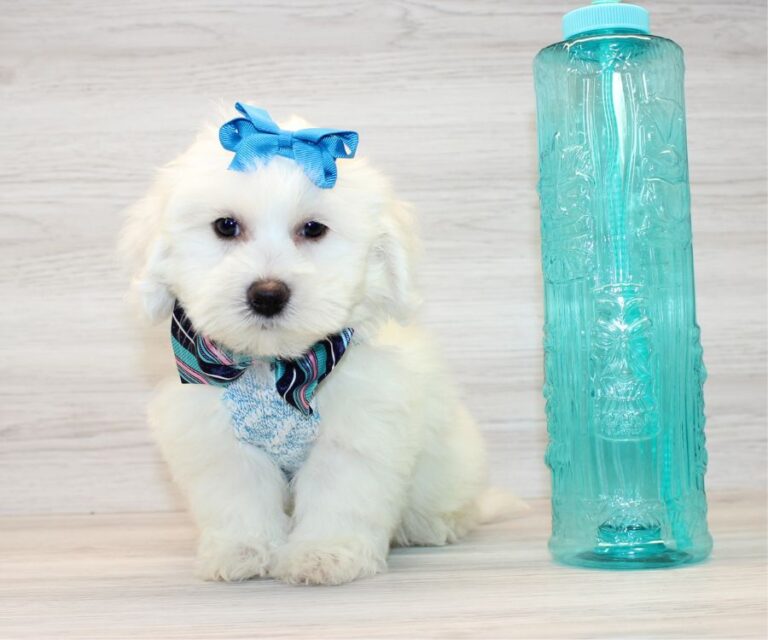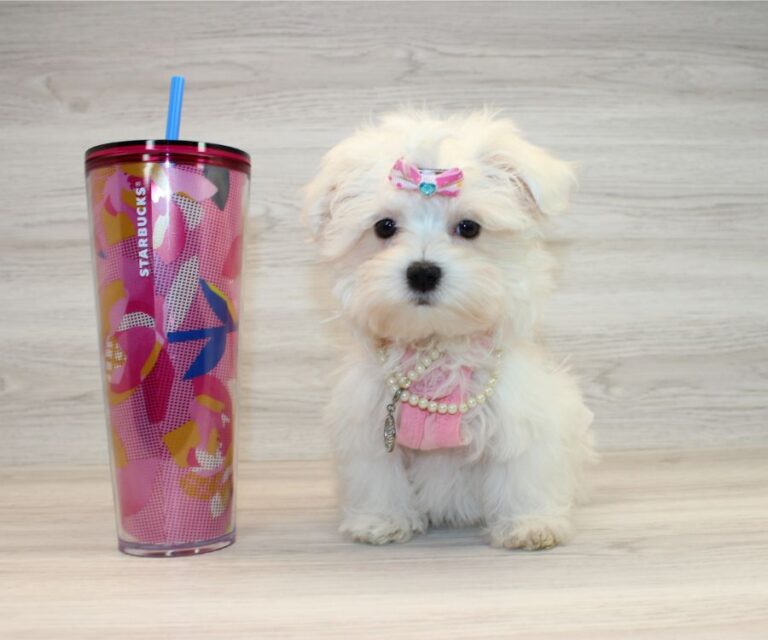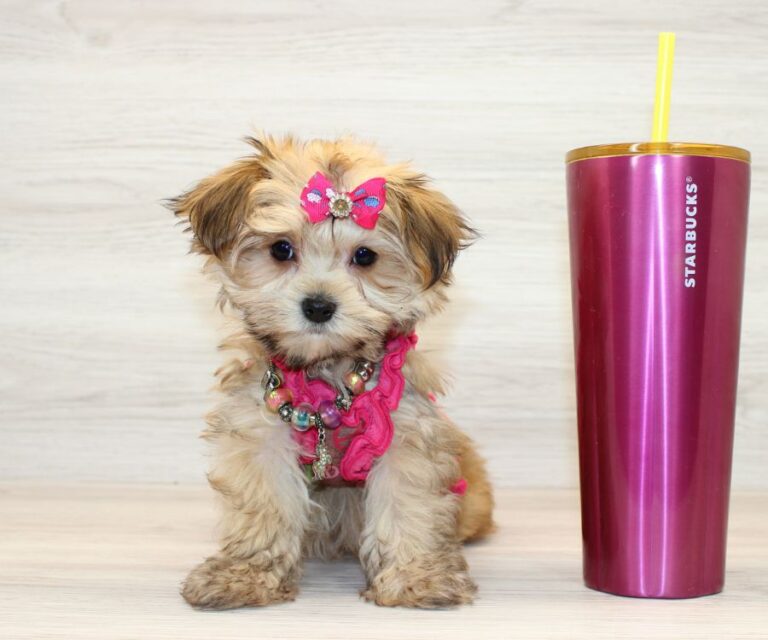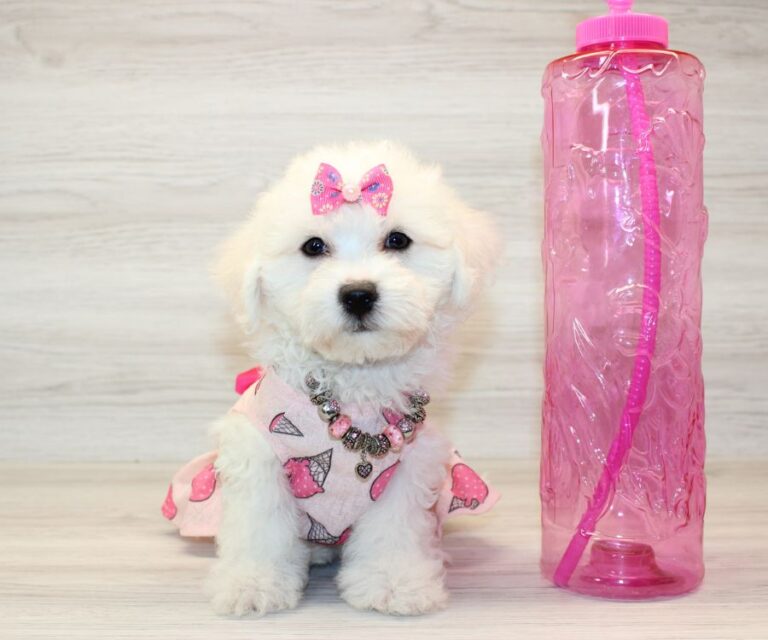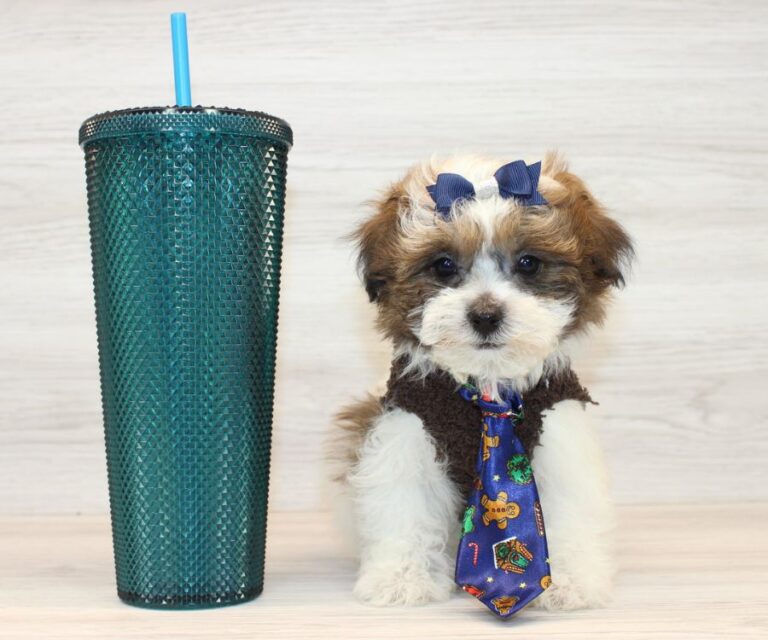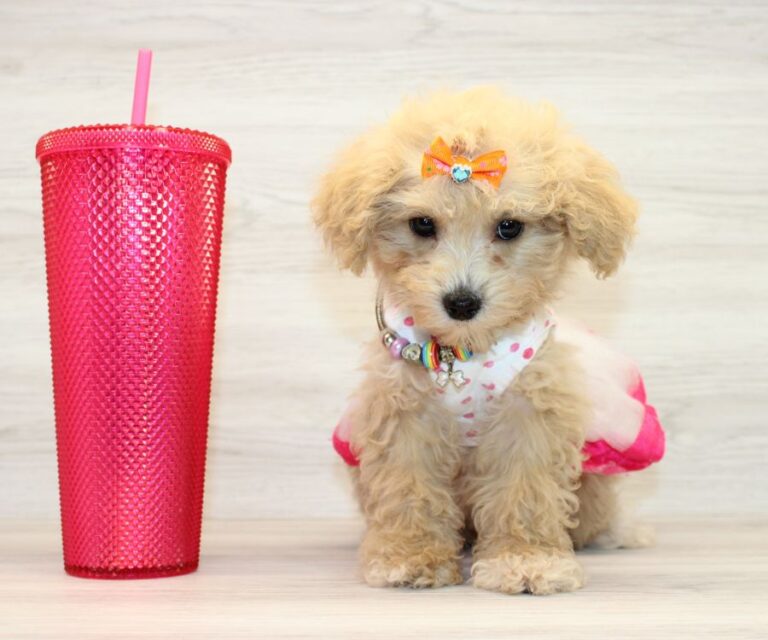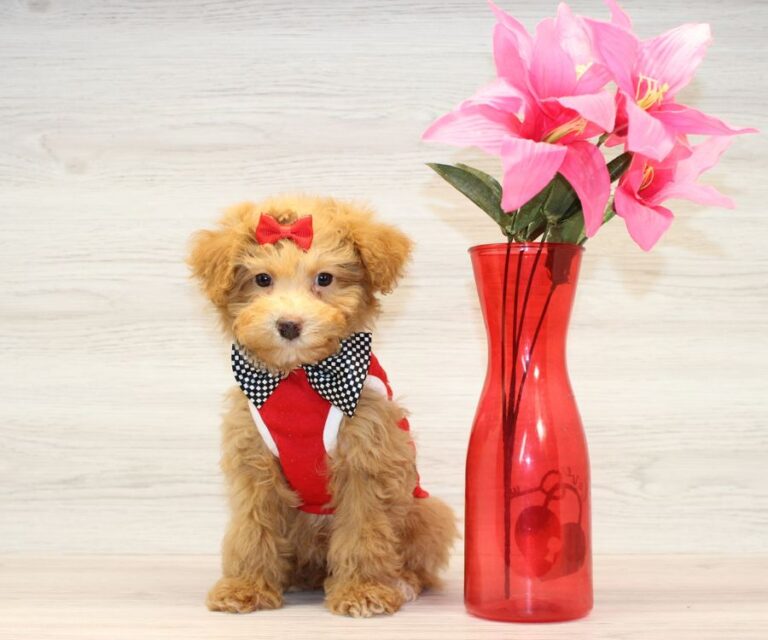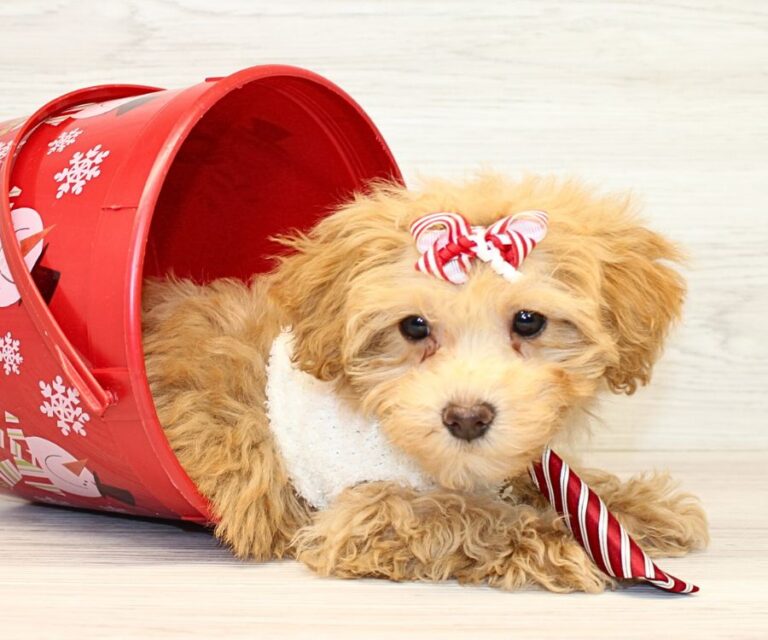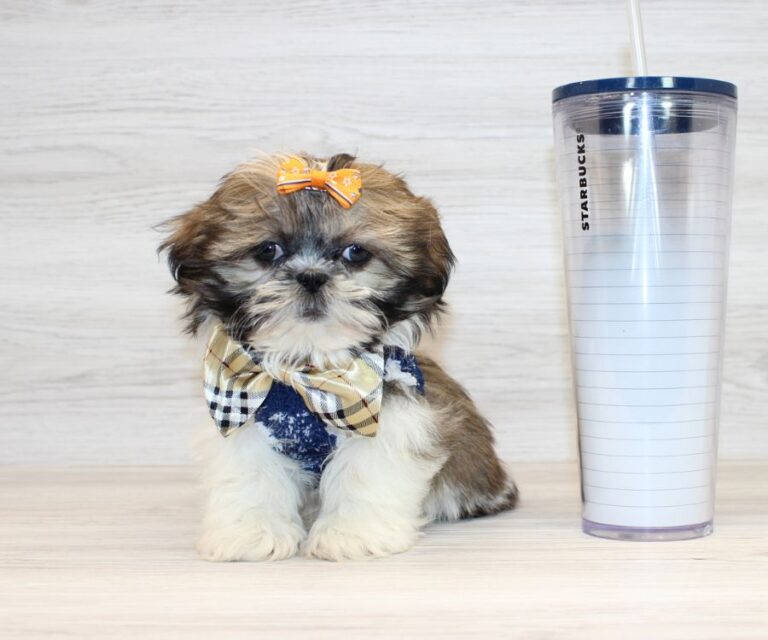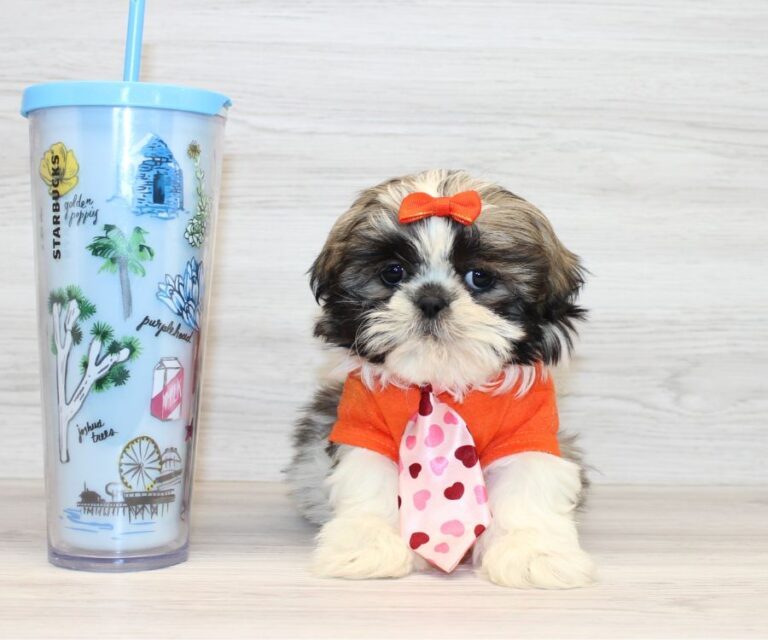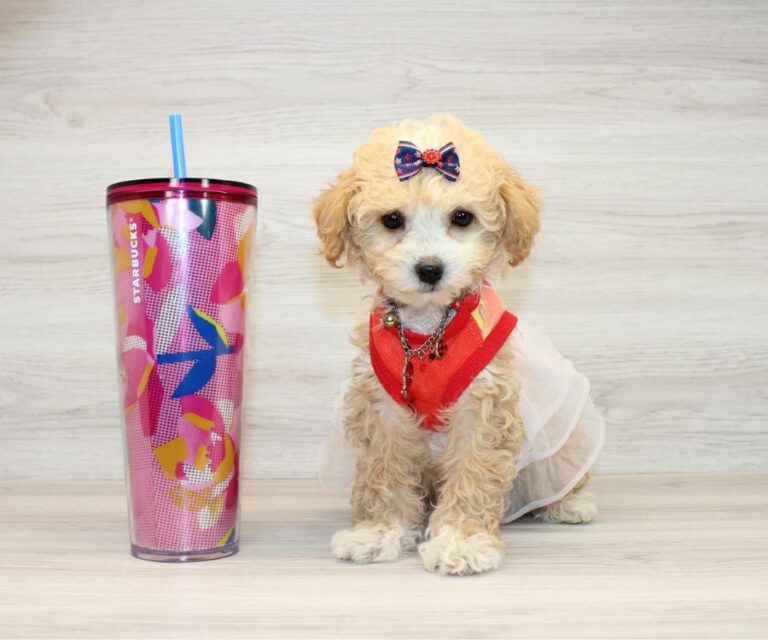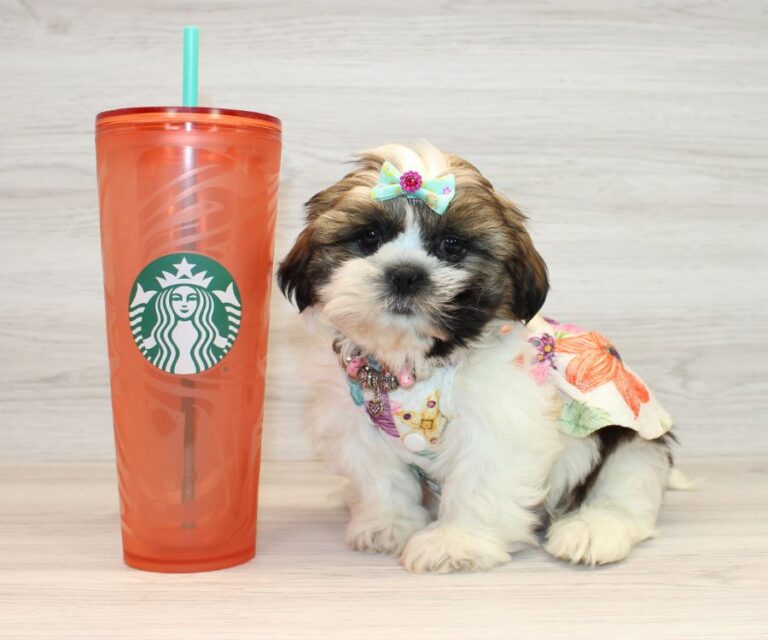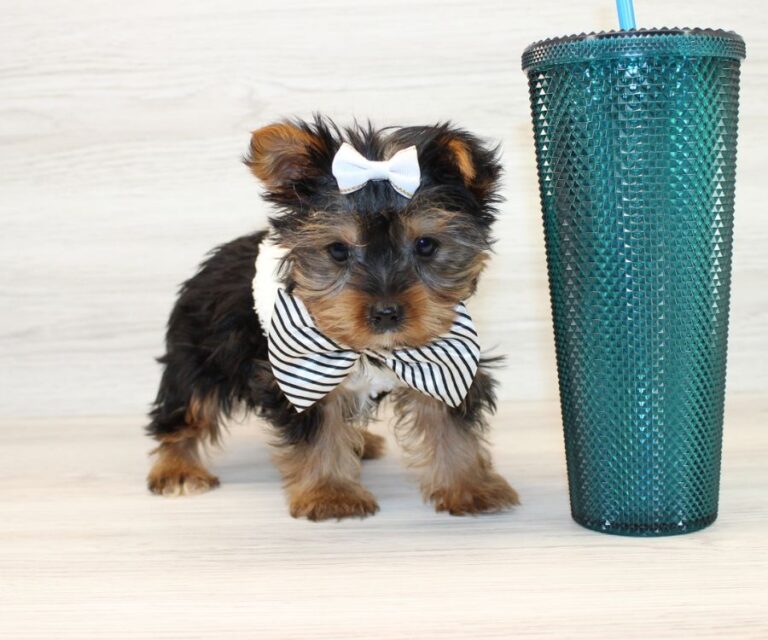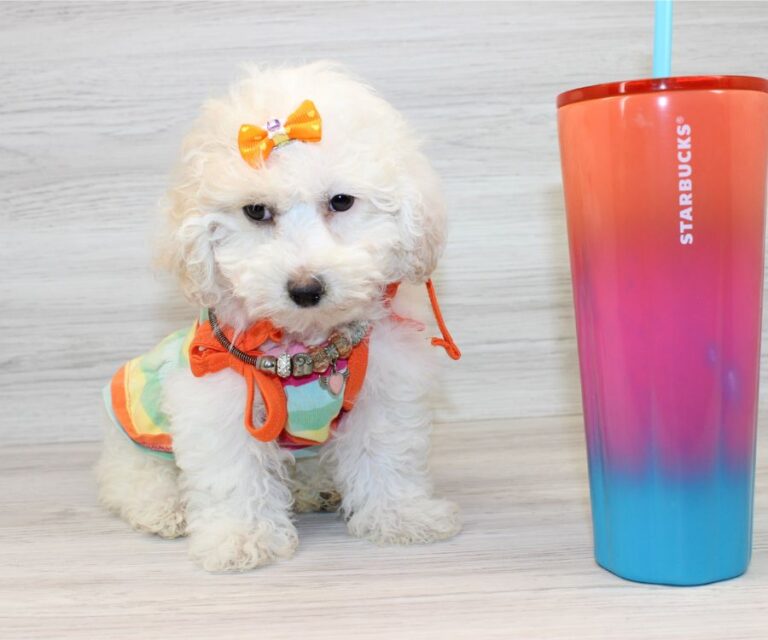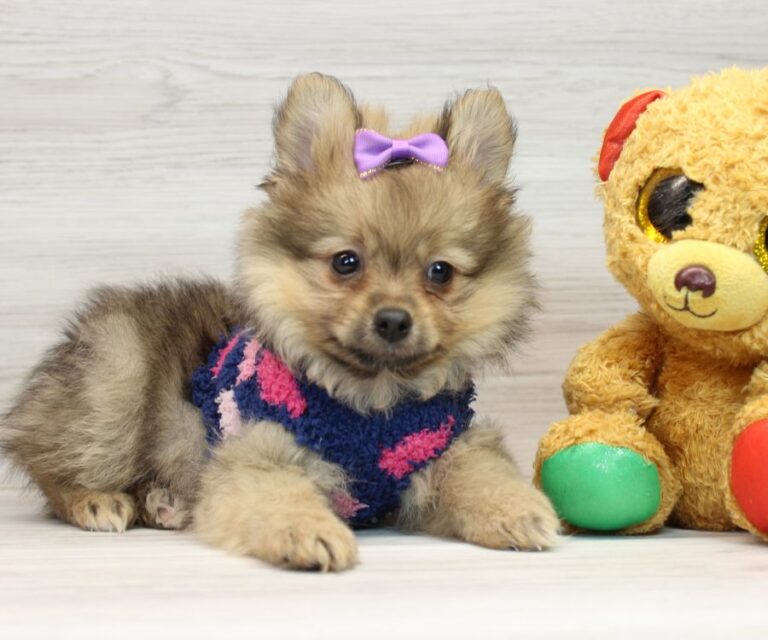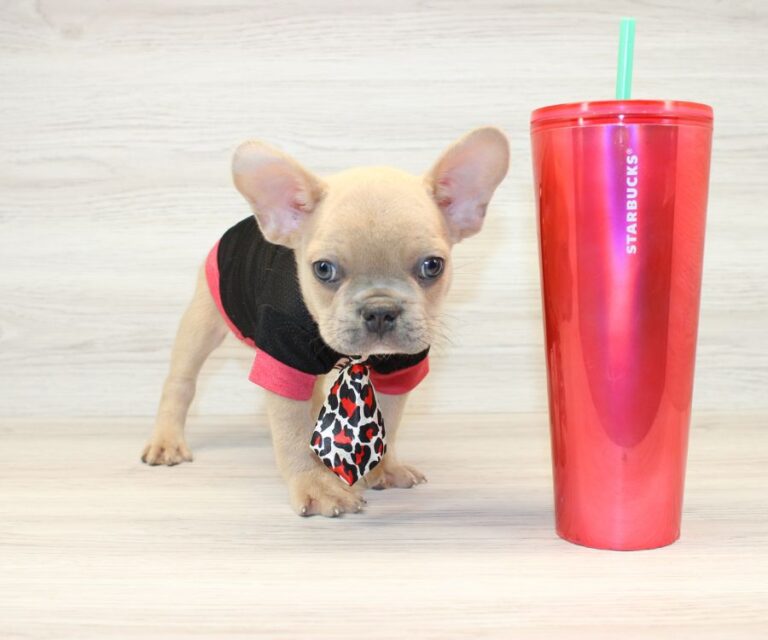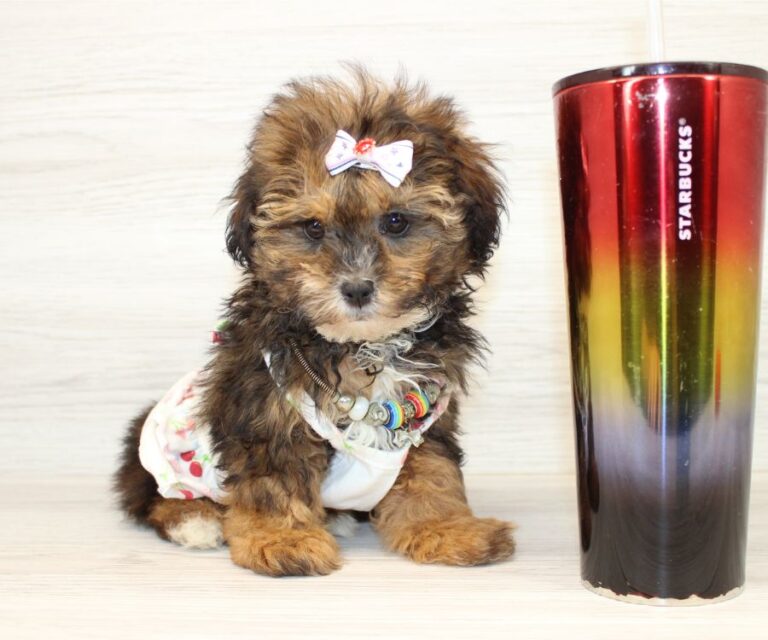If you’re on the hunt for toy and teacup puppies in Glendale, AZ, PuppyHeaven.com offers a delightful array of these compact, loving companions. Known for their intense loyalty and affection, these small-sized breeds are perfect for smaller living spaces, minimizing allergy sensitivity and simplifying handling needs. They also tend to have a longer lifespan due to proactive health management. At PuppyHeaven, you can expect well-socialized puppies with essential training and dietary guidance tailored to tiny dogs. Discover popular breeds and learn about the thoughtful adoption process provided by PuppyHeaven. Further information will provide more insights into how you can prepare your home for a new furry friend.
Why Choose Toy & Teacup Puppies
Choosing toy and teacup puppies offers the unique advantage of a compact, loving companion that fits seamlessly into a variety of living situations. You’ll find that their minimal space requirements are a significant benefit, especially if you’re residing in an apartment or a home with limited space. These small-sized breeds adapt well to smaller areas, ensuring they can comfortably live without the need for extensive indoor or outdoor space.
Moreover, the emotional bond you can develop with toy and teacup puppies is profound. These dogs typically exhibit a high level of dependency on their owners, which fosters a deep connection. They look to you not just for basic needs like food and shelter, but also for comfort and security. The intense loyalty and affection they display can be particularly rewarding, especially if you’re passionate about serving and caring for others. This bond can elevate your daily interactions, making the care you provide deeply satisfying.
Therefore, when you choose to bring a toy or teacup puppy into your life, you’re not just getting a pet; you’re gaining a dedicated companion who enhances your environment and enriches your emotional well-being.
Health Benefits of Smaller Dogs
You’ll appreciate knowing that smaller dogs like toy and teacup puppies often enjoy longer lifespans compared to their larger counterparts, making them long-term companions.
Additionally, their diminutive size contributes to reduced allergy sensitivity, providing a better environment for those with pet allergies.
Moreover, the ease of handling and caring for smaller dogs offers undeniable advantages, especially regarding grooming and space requirements.
Longer Lifespan Benefits
Many smaller dog breeds often enjoy longer lifespans, providing their owners with extended years of companionship and reduced long-term health complications. Genetic factors play an important role in the longevity of these tiny canines.
Age-related research indicates that smaller dogs typically live longer due to slower rates of growth and fewer orthopedic issues, which are common in larger breeds. This means you’ll likely spend more quality years with your petite companion, experiencing fewer age-related health issues.
Additionally, the proactive management of their health through regular veterinary care can further enhance their lifespan. Understanding these benefits helps you make informed decisions about the care and love you provide, ensuring a fulfilling life for both you and your small furry friend.
Reduced Allergy Sensitivity
Beyond the benefits of a longer lifespan, smaller dogs often exhibit reduced sensitivity to allergens, making them an excellent choice for individuals with allergies.
Their diminutive size contributes to lesser allergen accumulation in your home, as they shed less and produce fewer environmental allergens compared to larger breeds. Additionally, many toy and teacup breeds fall under the category of hypoallergenic dogs.
These breeds, such as the Maltese and Toy Poodle, have hair that grows continuously with minimal shedding, thereby reducing the dispersal of dander and other allergenic particles. Opting for a smaller dog can greatly lessen your exposure to allergens, enabling a more comfortable and symptom-free cohabitation.
This advantage is important for serving your need for a healthier living environment.
Easier Handling Advantage
One significant advantage of smaller dogs is their ease of handling, which simplifies tasks like bathing, grooming, and transporting. You’ll find that smaller breeds offer unparalleled travel companionship due to their compact size. Whether it’s a quick trip to the store or a long vacation, these petite pets are effortlessly portable, making travel stress-free.
Additionally, smaller dogs excel in space efficiency. Living in smaller apartments or homes isn’t a problem; they adapt well and require minimal space to thrive and stay healthy. This adaptability extends to their exercise needs, which can often be met within smaller indoor or urban environments.
Ultimately, their manageable size not only makes physical handling easier but also enhances the quality of your everyday interactions with your furry friend.
Popular Breeds at Puppyheaven
Why not explore some of the most sought-after breeds at Puppyheaven, including the charming Shih Tzu, the playful Pomeranian, and the loving Yorkshire Terrier?
Diving into their breed origins, the Shih Tzu hails from ancient China, treasured by royalty for its affectionate nature. In contrast, the Pomeranian, with its roots in the Pomerania region of northern Poland and Germany, was bred down to its current small size from larger sled-pulling dogs. The Yorkshire Terrier emerged from the working class of England, refined over time into the companionable lap dog we adore today.
In terms of size comparison, these breeds are ideal for those seeking a smaller canine companion. The Shih Tzu and Yorkshire Terrier typically weigh between 4 to 7 pounds, making them perfect for cozy living spaces. The Pomeranian is even smaller, often weighing about 3 to 7 pounds, with its tiny stature packed with a lively and spirited personality.
Each breed brings its unique blend of traits that cater to various preferences, ensuring that you’ll find a perfect match to enrich your life and serve your desire to nurture and care for a loving pet. At Puppyheaven, you’re not just getting a pet; you’re welcoming a new member into your family.
Puppy Care Essentials
When you bring home a toy or teacup puppy, understanding the essentials of puppy care is essential.
You’ll need to focus on proper feeding schedules, basic training techniques, and regular health check routines to guarantee your new pet thrives.
These foundational elements help build a healthy, happy relationship between you and your puppy.
Feeding Your Puppy
Properly feeding your puppy is essential to make sure they grow up healthy and strong. Establishing regular meal schedules is important. Typically, toy and teacup puppies should be fed three to four times a day until they’re six months old. This frequent feeding supports their fast metabolism and aids in steady growth.
As you plan their diet, remember the significance of puppy hydration. Always provide fresh, clean water, especially following meals and playtime to ensure they stay properly hydrated.
Choose high-quality puppy food that’s suitable for their breed size and age. Consult with a vet to tailor their diet to their specific needs, which can prevent overfeeding and ensure that they receive all necessary nutrients for excellent health.
Training Basics
Starting your puppy’s training early is important for developing good behavior and social skills. Introducing potty schedules as soon as your puppy arrives helps establish routine and prevents accidents.
Consistency is key, so take them out at the same times each day, especially after meals and naps. Crate training is another cornerstone of puppy training, providing your pet with a safe space and aiding greatly in housebreaking efforts. Make sure the crate is comfortable and positioned in a quiet area of your home.
Health Check Routines
To guarantee your puppy’s peak health, establish a routine of regular veterinary check-ups and vaccinations from an early age. Adhering to a prescribed vaccination schedule is important for preventing various infectious diseases. Starting these vaccinations while they’re young builds a strong foundation for their immune system.
Additionally, discuss with your vet the best grooming frequency for your specific breed, as grooming isn’t just about keeping them looking pristine; it’s essential for their overall well-being. Regular brushing removes excess fur, reduces shedding, and prevents skin diseases. Furthermore, nail trims and ear cleanings should be part of their routine care.
Training Tips for Tiny Dogs
Training your tiny dog requires patience and consistency, as their small size can present unique challenges. Specifically, potty challenges are common with toy and teacup breeds. Due to their small bladders, frequent trips outside are necessary to prevent accidents. Establishing a strict bathroom schedule helps your puppy understand when and where it’s appropriate to relieve themselves. Importance is key, so make sure you’re taking them out at the same times every day.
Behavioral modification is another essential aspect of training your tiny dog. These small pups can develop a big attitude, often known as ‘small dog syndrome.’ This can lead to behaviors like excessive barking, aggression, and anxiety. Addressing these behaviors early and firmly is essential. Use positive reinforcement techniques such as treats and praises to reward good behavior. It’s also important to set clear boundaries and rules. Remember, you’re in charge, not your tiny companion.
Training sessions should be short to keep them engaged, as tiny dogs can easily become overwhelmed and tired. About 5-10 minutes per session is ideal. Patience and gentle guidance during these sessions will help your tiny dog grow into a well-behaved, loving companion.
Socializing Your New Puppy
Socializing your new puppy frequently plays an important role in their development, helping them become well-adjusted and confident adult dogs. It’s vital to introduce your puppy to a variety of experiences, people, and other animals early on to foster their social skills and reduce fear or aggression as they grow.
Initiating puppy playdates is a superb way to facilitate this growth. Choose playmates who are vaccinated and known to be friendly and calm, which will guarantee these interactions are positive. It’s not just about fun; these playdates are pivotal in teaching your puppy how to behave and communicate effectively with other dogs.
During these social gatherings, it’s important to engage in behavior observation. Watch how your puppy interacts with others—do they play nicely, or are they shy or aggressive? Understanding their behavior in these settings will guide you in providing the right support and training. If you notice any concerning behaviors, it might be time to consult a professional trainer or behaviorist to address these issues early.
The Right Diet for Small Breeds
Feeding your small breed puppy the right diet is essential for their overall health and development. Small breeds have unique dietary needs that differ greatly from larger dogs. It’s important to focus on high-quality protein sources to support their rapid growth and high energy levels. Look for dog foods that list real meat, fish, or poultry as the first ingredients. These protein sources provide the essential amino acids necessary for your puppy’s muscle development and overall vitality.
Additionally, don’t overlook the importance of hydration. Small puppies can dehydrate quickly, so always make sure fresh water is available. Implement hydration tips such as adding wet food to their diet or providing a shallow water dish they can access easily. This not only helps in maintaining adequate hydration but also aids in digestion and nutrient absorption.
Preparing Your Home
After guaranteeing your puppy’s nutritional needs are met, it’s important to focus on making your home a safe and welcoming space for them. You’ll need to start with space adjustments that cater to their size and energy levels. Designate a specific area for your puppy to eat, sleep, and play. This should be a quiet corner away from high-traffic zones to minimize stress and distraction.
Safety proofing is another vital step. Start by securing electrical cords and removing small objects that could be choking hazards. Make sure all cleaning supplies, medications, and toxic plants are out of reach. Consider installing gates to prevent access to potentially dangerous areas like stairs or kitchens.
Flooring is also important; provide a slip-free surface to protect your puppy from injuries while they scamper and play. Rugs or play mats can offer comfort and safety.
Additionally, setting up a routine for your puppy will help them feel more secure and assist in their training process. Consistency in their daily activities, from feeding times to potty breaks, creates a structured environment that both nurtures and calms.
Adoption Process Explained
Understanding the adoption process is crucial before you bring a new puppy into your home. Initially, you’ll need to complete a detailed application. This form gathers information about your living situation, pet history, and lifestyle to make sure you’re well-suited to provide a nurturing environment for a toy or teacup puppy.
The application steps involve providing personal references and possibly a vet reference if you’ve previously owned pets. You’ll also detail the type of home you offer, such as the presence of other pets and the amount of space available. It’s important to be honest and thorough in your responses.
Following the submission of your application, the approval criteria come into play. The breeder or adoption agency will review your application to evaluate compatibility between you and the available puppies. Key factors include your ability to provide a safe, loving home and the match between your lifestyle and the needs of a small breed dog. They may also consider your experience with pets and your understanding of the specific care requirements of toy and teacup puppies.
Once approved, you’ll be guided through the final steps of the adoption, which includes signing an adoption agreement and arranging for the pickup of your new puppy.
Conclusion
As you consider welcoming a tiny new friend into your life, remember that toy and teacup puppies, while adorable, require specific care. From their diet to their socialization and training, each step is vital in ensuring their health and happiness.
Trust Puppyheaven to guide you through the adoption process and prepare your home for your petite companion. Embrace the joy and unique challenges of tiny dog ownership and make your puppy’s shift into your family a smooth and delightful experience.

